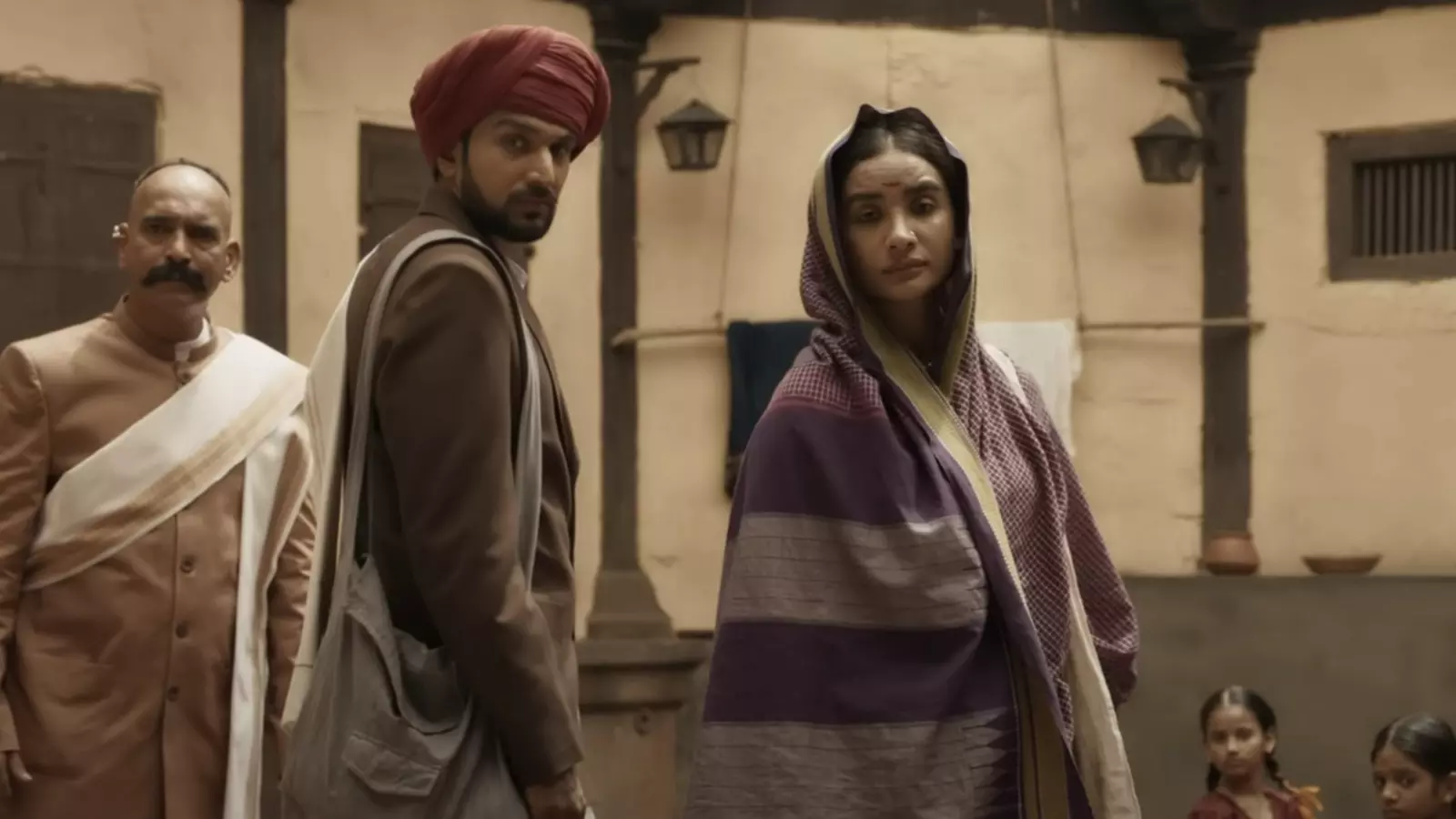Phule: A Cinematic Tribute to Social Reformers Jyotiba and Savitribai Phule
The film 'Phule' honors the contributions of Jyotiba and Savitribai Phule in fighting caste discrimination and promoting women's education.;

The film 'Phule' has finally graced the silver screen after much anticipation. Directed by Ananth Mahadevan and featuring talented actors Pratik Gandhi and Patralekhaa, this biopic aims to shed light on the significant contributions of Jyotiba and Savitribai Phule in the fight against caste discrimination and their relentless pursuit of female education in 19th-century India. In the wake of its release, the film has sparked conversations about the impact of these reformers on Indian society.
What Does 'Phule' Portray?
The narrative begins amidst the chaos of the Great Plague in Pune, where Savitribai Phule's humanitarian efforts take center stage. Flashbacks reveal her relationship with Jyotiba, emphasizing their mutual respect and commitment to education. This portrayal of their partnership sets a strong foundation for the film, showcasing how they challenged societal norms together. The film isn’t just a historical recount; it aims to resonate with contemporary audiences by highlighting the parallels between the struggles faced by the Phules and today's ongoing battles against caste and gender discrimination.
Strengths and Weaknesses of the Film
One aspect that stands out in 'Phule' is its ability to educate viewers about these unsung heroes. There are powerful scenes that linger in the mind, particularly when Savitribai confronts patriarchal figures, asserting her place in a society that sought to silence her. Similarly, the courtroom scene where Jyotiba staunchly defends his ideals against the Brahmin community is gripping.
However, the film does encounter some pitfalls. Clocking in at just over two hours, it attempts to cover an extensive narrative, which can be overwhelming. The pacing suffers as it juggles numerous events without offering deeper insights into the characters’ motivations. By the time the credits roll, viewers may feel exhausted, longing for a more cohesive resolution that truly encapsulates the essence of the Phules’ journey.
Production Quality and Performances
Visually, 'Phule' is commendable. The production design captures the era beautifully, immersing audiences in the historical context. Yet, despite the solid performances from both leads, there are moments that veer into caricature, detracting from the gravity of their real-life struggles. It’s essential for biopics to maintain authenticity, and at times, 'Phule' struggles to balance dramatization with realism. The music by Rohan-Rohan adds to the overall atmosphere but lacks memorable depth.
Cultural Significance and Audience Reception
The cultural significance of 'Phule' cannot be understated. As society grapples with issues of caste and gender, the film serves as a reminder of the long-standing battles fought by pioneers like Jyotiba and Savitribai. Early social media responses indicate a positive reception, with viewers praising the film's themes and urging others to witness this vital piece of history. As one viewer aptly stated, the Phule couple didn’t just fight against injustice; they rewrote history.
In summary, 'Phule' is a sincere attempt to honor the legacy of two remarkable reformers. While it has its flaws, the film is a crucial conversation starter about caste, gender, and the importance of education in society. As we reflect on the struggles of the past, 'Phule' encourages us to continue the quest for equality and justice in the present day.

